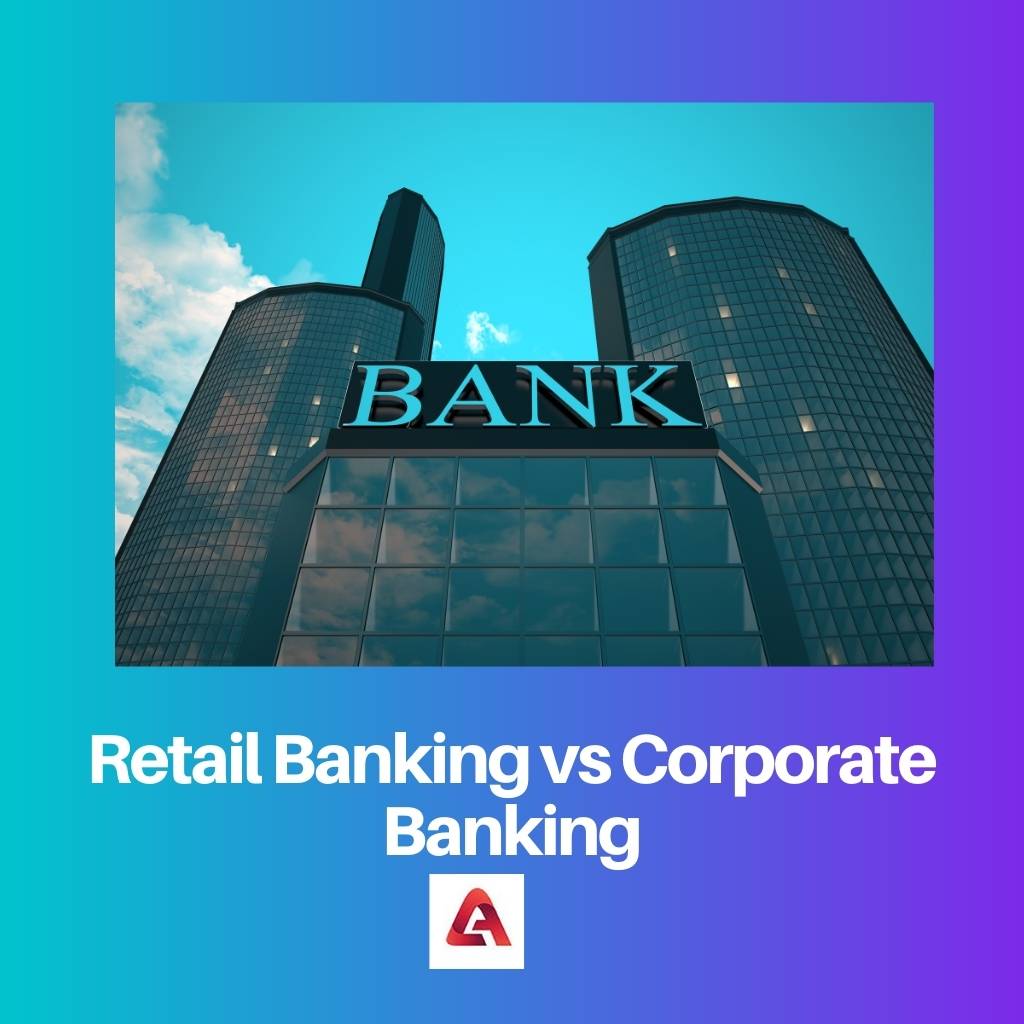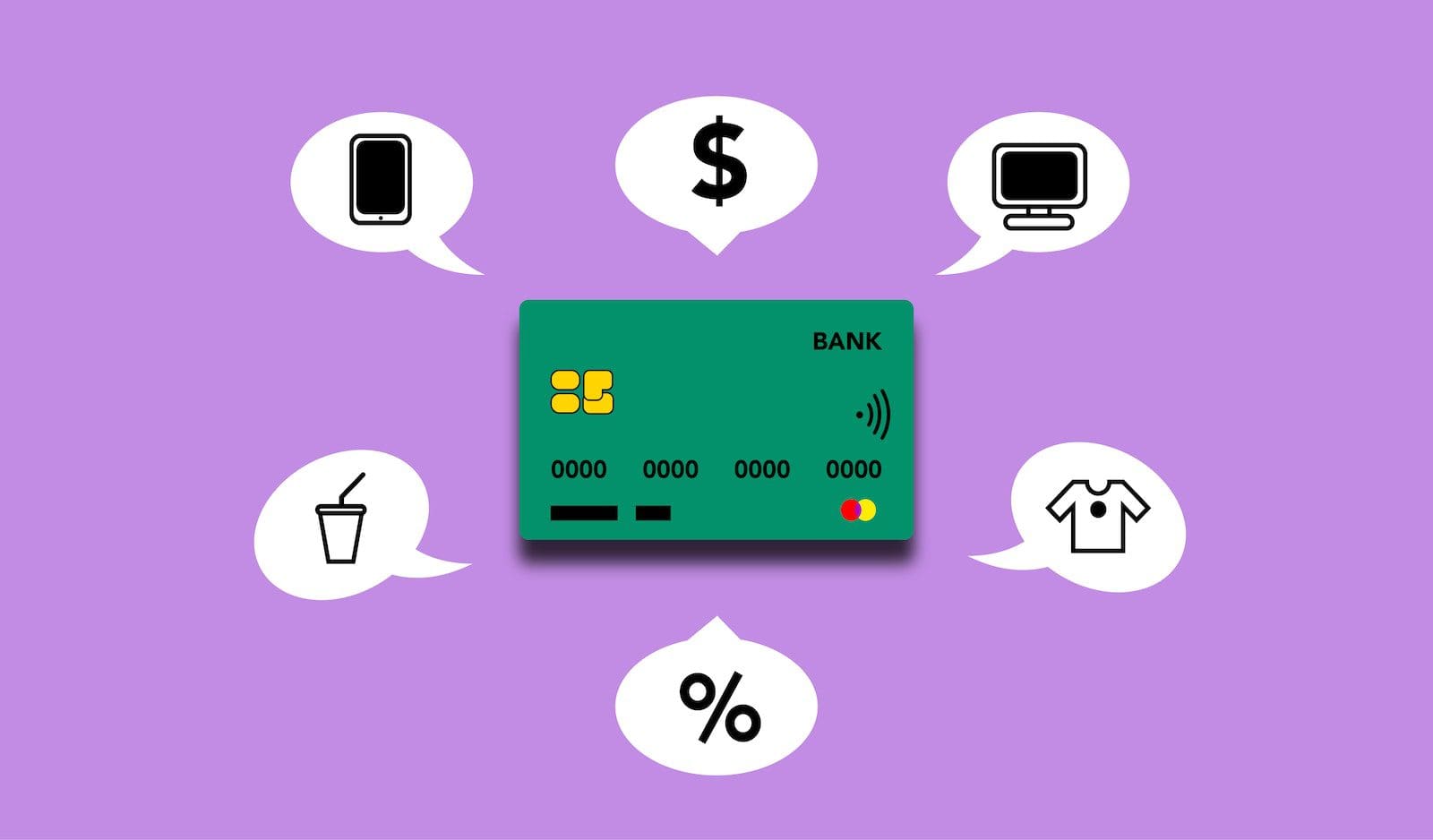Banking plays a vital role in our economy. They ensure that the transactions happen swiftly and without any disturbance. They are a financial system that can lend money to people (everyday or business needs) for personal or professional needs.
Mostly all the economic functions are done through or by the bank. Salaries, bills, savings, loans, and e-payments are all possible because of the banks.
Banks act as an intermediary between people. They help in facilitating commerce. Commercial banking, payments banks, cooperatives, merchant banking, retail, corporate banking, etc., are a few parts and types of banks.
Key Takeaways
- Retail banking provides financial services to individual customers and small businesses, while Corporate banking provides financial services to large businesses and corporations.
- Retail banking services include personal loans, savings accounts, credit cards, and mortgages, while Corporate banking services include cash management, trade finance, mergers and acquisitions, and corporate loans.
- Retail banking is characterized by a high volume of transactions with low individual values, while Corporate banking involves a smaller number of transactions with high individual values.
Retail Banking vs Corporate Banking
Retail banking is a unit that deals with retail customers/ consumers, whereas corporate banking is a unit that deals with large corporate clients. Retail banking has a lower transaction level and higher client base, whereas corporate baking has a more elevated and lesser client base.

Retail banking is a banking sector that deals with consumers/the general public. The benefits of this are personal loans, debit and credit cards, mortgages, provision of savings, etc.
There are even sub-types of retail banks. It is a face-to-face method of providing services. They act as a one-stop shop for all their customers. The customer’s deposit is the most crucial source of funds for retail banking.
Corporate banking is a banking service sector that deals with only corporate firms/businesses. They work directly with them and alter and provide services according to their needs.
Corporate provides them with loans, credits, savings, checking accounts, etc. All these are specially designed and serve small to middle-sized businesses and large conglomerates.
Comparison Table
| Parameters of Comparison | Retail Banking | Corporate Banking |
|---|---|---|
| Meaning | Retail banking is a banking service sector that deals with individuals/the general public. | Corporate banking is a banking service that deals with corporate and business firms. |
| Nature of Product/Service | It is the same ( standardized) for every individual. | It is specially designed and customized according to their client’s needs. |
| Clientele | Large. As the general public is more in number | Comparatively small |
| Processing Cost | Low processing costs | High processing costs |
| Also Known as | Consumer banking or personal banking. | Business Banking |
| Value of Transactions | Lower value | Higher value |
What is Retail Banking?
Retail banking is a sector or model which deals with the general public/ individuals. It is a basic one-stop store banking that provides its customers with personal attention to provide them with their needs.
It is also called consumer banking or personal banking.
There are hundreds of bank branches in different locations in each city to provide their customers with the best.
There are a few characteristics of retail banking –
- They help with various products and services – credit and debit cards, personal loans, mortgages, insurance, locker facility, etc.
- Various consumer groups – households, trusts, small or medium enterprises (SME), etc.
- Various channels of distribution – websites, branches, online/mobile applications, call centres, etc.
Types of retail banking –
- Commercial banking – they are banks in gen—services like personal banking, online banking, lending or borrowing, etc.
- Private Banks – operate in urban areas, care for high-level income groups, etc.
- Credit unions – similar to commercial banks but on a smaller scale (not-for-profit institutions)
- Regional rural banks – Gramin banks are regional-level banks to serve low-income groups.
Retail banking is part of an individual’s day-to-day life. It proves to be an essential component of both traditional and modern banking. It is known to provide more liquidity as they influence the money supply. They offer competitive interest rates to lower the cost of borrowing.

What is Corporate Banking?
Corporate banking refers to the sector or a part of the bank that deals with corporate customers (private limited companies, public limited companies, etc.).
They work directly with the business and design special services/products according to their client’s needs. It is also called business banking.
Helping them with their services enables businesses to grow, contributing to the economy’s expansion. They cater to the needs of small-midsized local businesses to large conglomerates.
To maximize their business, corporate banks hire relationship management to maintain good client relationships.
The services they offer –
- Commercial banking activities- term loans, line of credits, e-banking, trade finance, etc
- Services for MNCs and government bodies – international transactions, advisory services, cash management, underwriting of securities, etc.
- Etc
A business needs to have a corporate account, even for advisory purposes, as self-accounting and professionalism are essential.
The processing costs are high, just like the value of the transaction, compared to other banking sectors. Corporate banking can be more profitable. The credit rating can affect the share or valuation price of a company.
Interest and fees charged on the services provided are the primary sources of profit. They work and give rapid/ urgent solutions to their clients.
Corporate banking has a small customer base.

Main Differences Between Retail Banking and Corporate Banking
- Retail banking is a sector or a part of a banking service that deals with individual consumers/the general public. In contrast, corporate banking is a section of banking service that deals with only corporate/ businesses.
- Retail banking provides the same (standardized) kind of services to all its customers, whereas corporate banking customizes its services according to its customer’s needs.
- Retail banking has a large client base, including all individuals, whereas corporate banking has a comparatively lesser clientele.
- Retail banking has a low processing/ handling cost, whereas corporate banking has a high processing cost.
- Retail banking is also known as consumer banking, whereas corporate banking is also known as business banking
- Retail banking has a low value of transactional value, whereas corporate banking has a high value of the transaction as it is related to businesses.
- https://www.emerald.com/insight/content/doi/10.1108/09564239410068670/full/html
- https://www.emerald.com/insight/content/doi/10.1108/02652329210012122/full/html
Last Updated : 11 June, 2023

Chara Yadav holds MBA in Finance. Her goal is to simplify finance-related topics. She has worked in finance for about 25 years. She has held multiple finance and banking classes for business schools and communities. Read more at her bio page.

The straightforward and comprehensive explanation of retail and corporate banking is highly commendable. It’s beneficial to have such detailed insights into these sectors.
Absolutely, the article’s clear elucidation of these banking sectors is extremely insightful and valuable.
Well said. The comprehensive nature of this content offers a wealth of knowledge about retail and corporate banking.
The detailed comparison and descriptions of retail and corporate banking in this article make it a highly valuable read. It’s a commendable resource for those seeking a deeper understanding of these sectors.
Definitely. The article’s thorough exploration makes it a highly informative and insightful piece for understanding retail and corporate banking.
I couldn’t agree more. The content’s depth and clarity truly enhance the reader’s insight into these banking sectors.
The detailed description of retail banking and corporate banking offered in this article is both enlightening and valuable. It’s a great resource for anyone looking to understand these distinctions.
I completely agree. The article covers the topic thoroughly and makes it easily comprehensible.
Retail and corporate banking can be confusing topics, but this article does an excellent job of breaking down their differences and roles. A commendable piece of content.
Absolutely. Understanding these distinctions is crucial, and the article does a fantastic job of clarifying these concepts.
I find the comparison between retail and corporate banking very interesting. It’s clear that corporate banking involves specialized and customized services while retail banking has a broader, standardized approach.
I see your point. The article’s detailed comparison is indeed thought-provoking and sheds light on the specific nature of services provided by both types of banking.
The article posits the vital role of banking in our economy but also delves into crucial distinctions between retail and corporate banking. A well-crafted piece that adds value to the reader’s understanding.
Absolutely. The post doesn’t just state basic information but rather provides comprehensive insights that are extremely helpful.
The article did an excellent job describing the difference between retail and corporate banking. It’s clear that both have diverse roles in the economy and serve different client bases.
I completely agree with you. The post is highly informative and comprehensive.
I think it’s important for people to understand the significance of both retail and corporate banking in the economy. This article does a great job of highlighting their roles and differences.
This post provides a detailed exploration of both retail and corporate banking, making it an informative read for anyone seeking to understand these facets of the economy better.
Definitely. The article’s thoroughness in covering the nuances of retail and corporate banking is truly commendable.
I couldn’t agree more. The in-depth analysis provided by the article is truly enlightening and adds significant value.
The article succeeds in providing an in-depth understanding of both retail and corporate banking, adding significant value to the reader’s comprehension of these sectors.
Absolutely. The article is a great resource for anyone looking to gain comprehensive knowledge about retail and corporate banking.
The comparison table provided is a great summary of the key differences between retail and corporate banking. It’s concise and informative, giving a clear picture of their distinctions.
You’re right. A comparative analysis like this is very beneficial for understanding the nuances of retail and corporate banking.